
If your organization is planning an event of any kind, please email Caitlin at [email protected].
EVENTS
‘Unhoused’ Episode 4 — Recognizing realities.
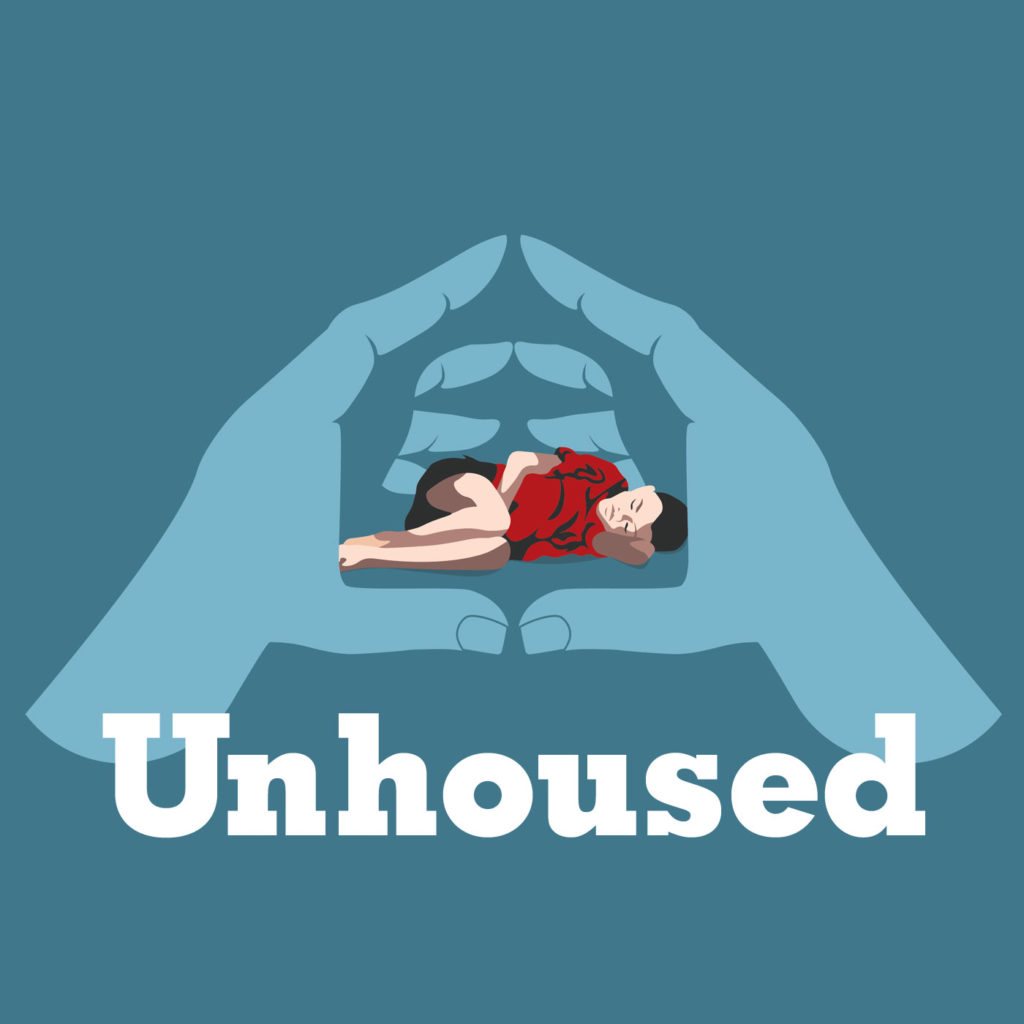
The increased visibility of street homelessness as a result of the coronavirus pandemic has motivated a wave of new conversations about the feasibility of sanctioned encampments in Boulder and elsewhere.
The idea of a sanctioned campground for the unhoused is one that’s been loudly and routinely rejected by the larger Boulder community for decades. Concentrated public pressure has even motivated elected officials to move in the opposite direction, creating stricter anti-encampment policies over the years. But in a city where there are no day shelters, and the number of nighttime shelter beds have been reduced over the course of the last year while the criteria for who is eligible to sleep in those beds has also narrowed, many unhoused individuals feel they have no choice but to sleep outside.
Homeless advocates have long argued a reliable and indiscriminate space for people to rest would go a long way in reducing the number of random camps that pop up in downtown Boulder. And sanctioned encampments are used elsewhere in the country, with dozens created to support the growing unhoused populations since the coronavirus pandemic began.
Join host Emma Athena as she analyzes how COVID-19 has changed the conversation around homelessness solutions in Unhoused, a new podcast from Boulder Weekly and KGNU. Episode 4, “Recognizing realities” is available this week. Find it at boulderweekly.com or wherever you get your podcasts.
Rocks Karma Arrows: A Multimedia Theatre Presentation. 6 p.m. Sunday, Nov. 29, motustheater.org.
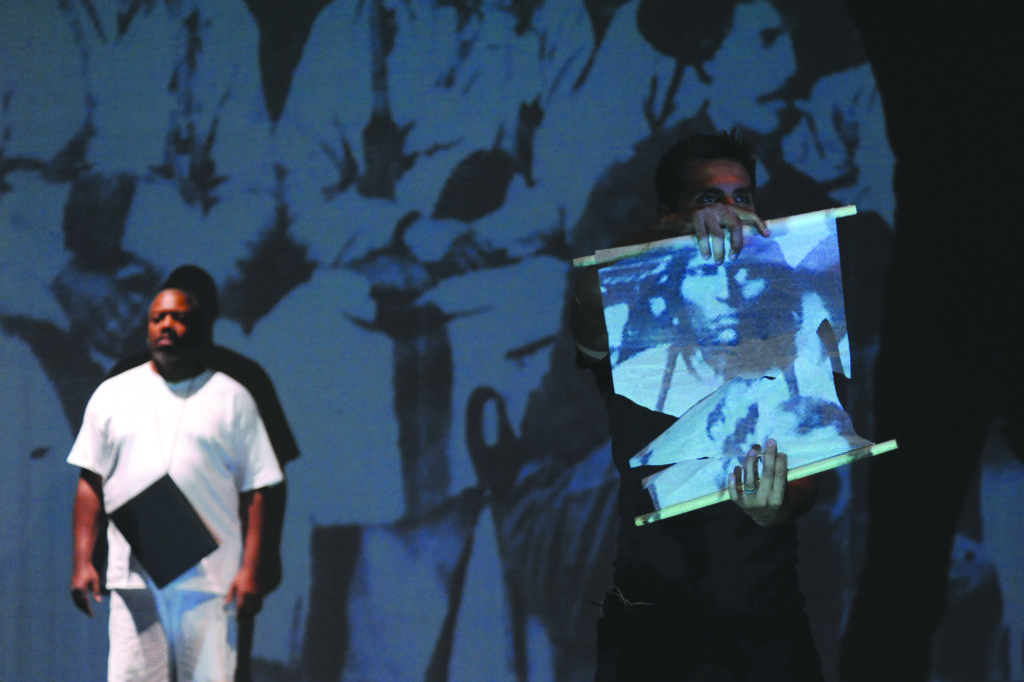
On the 156th anniversary of the Sand Creek Massacre, Motus Theatre has partnered with the Native American Rights Fund to present a free livestream of the award-winning 2009 film Rocks Karma Arrows. A poignant multimedia contemporary theater experience, this film explores the history of the Sand Creek Massacre and its pivotal role in the founding of Boulder County. Using historical photographs and film to see Boulder’s history through the lens of race and class, this film incorporates first-hand accounts of the massacre with commentary from local historians to create a well-rounded picture of the events and time period. While the immersive experience of this production isn’t available on-location due to COVID-19, Motus will let viewers be swept back to 1864 from the comfort of their homes. Educating the community on Boulder’s history and offering them the opportunity to reckon with its bloody past, this film also encourages viewers to come together and look forward into a more peaceful and equitable future.
Boulder Potters’ Guild 2020 Fall Online Show and Sale. Through Dec. 13, boulderpottersguild.org
Join the Boulder Potters’ Guild as it hosts its first ever online show and sale. About 20 members of the Boulder Potters’ Guild will be showing and selling their recent work online through their websites. The show will include functional, decorative and sculptural ceramic work as well as jewelry, fused glass objects, hand-painted silk scarves and embossed note cards. This sale is a great opportunity to support local artists, purchase gifts for the upcoming holidays, and connect virtually with the Boulder Potters’ Guild community.
Ugly Sweater Decorating DIY Class & Fundraiser Fashion Show. 6 p.m. Thursday, Dec. 10, firehouse.org.

This holiday season, Firehouse Art Center is getting creative with its virtual event offerings. Join Firehouse Executive Director Elaine Waterman for a free livestream DIY Sweater Decorating class on Dec. 10, where she’ll decorate a holiday sweatshirt with viewers at home and spread the seasonal cheer. Before Dec. 9, purchase a Holiday Sweatshirt Making kit for $15 (or $35 to include a sweatshirt) with pom poms, glitter and other fun decorative supplies. Kit fees include the $5 entry fee for the virtual Ugly Sweater Fundraiser Fashion Show on Dec. 17 at 6 p.m. You can also pay $5 directly to enter your own creation. This live online event will connect the community with past artists, art students and the Firehouse Art Center family. Throughout the event, photographs of your ugly holiday sweaters will be shown for the fundraiser, allowing viewers and participants to vote on best design, ugliest design, most colorful and best family picture. Donate $1 for each vote, enter to win fabulous prizes and help support local art and culture.
Black Friday, Small Business Saturday and Artists Sunday in Longmont. Nov. 27, 28 and 29, Downtown Longmont, downtownlongmont.com.
Put on your mask and support local small businesses and creatives in Longmont this holiday season. In Downtown Longmont, beginning on Friday, Nov. 27, there will be ice-carving demonstrations and photo opportunities in St. Stephen’s Plaza; street performers and entertainment; and prizes and giveaway drawings, all to enjoy while you pop into local stores to grab gifts for loved ones. On Artists Sunday, you can visit artisan pop-ups in businesses throughout Downtown Longmont and leave with some perfect handcrafted goods and gifts.
HEAVY ROTATION
“We Build Our Houses Well,” Rachel Dadd, Rozi Plain, Kate Stables (This Is The Kit)

If you’re finding it hard to get into the holiday spirit this year, see if this track by folk multi-instrumentalist Rachael Dadd and friends can warm your cold heart. Dadd and a whole cadre of friends (including bassist Rozi Plain and banjoist Kate Stables) eschew the chintzier trappings of traditional holiday music (no bells or French horns here) and home in on a sensation of togetherness. Dadd slowly builds a choir, layering vocal tracks over a lilting piano melody warmed by thoughtful touches of clarinet, harp and trumpet. The lyrics cut to the heart of our seasonal celebrations: “We build our houses well / Things cooking in the kitchen … We like to do our own thing / We clear a space for dancing / We sing, we sing / And the whole house makes a choir.” The track is featured on indie record label Memphis Industries’ holiday box set Lost Christmas. (A portion of proceeds from album sales go to the Home For All Campaign, providing support to those experiencing homelessness in the U.K.)
“Cardboard Castle,” Nana Adjoa
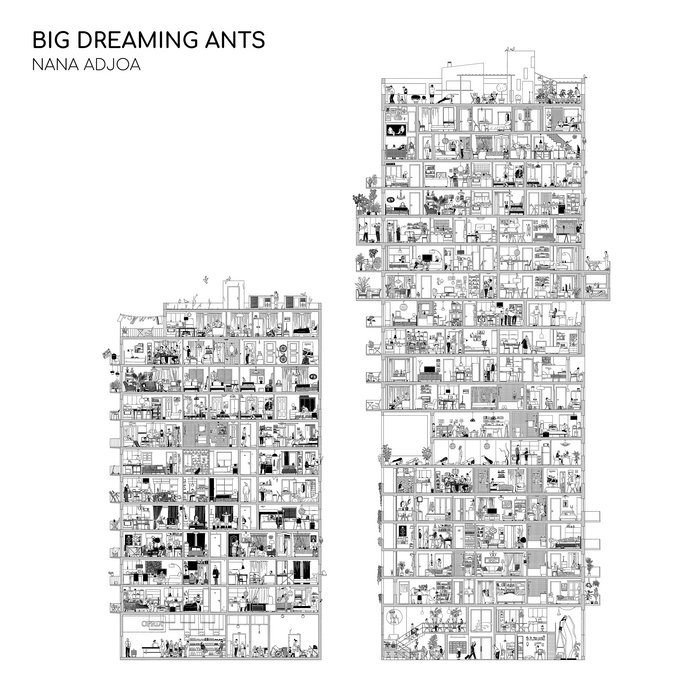
Driven by a moody, lower-register piano melody and eventually giving way to an anguished, Reznor-esque guitar riff, “Cardboard Castle” is perhaps the moodiest track on Dutch-Ghanaian multi-instrumentalist Nana Adjoa’s debut album, Big Dreaming Ants. As an American, it’s difficult not to think of the current state of politics when listening to “Cardboard Castle”: “Words bend / Coming out of your mouth / Bullshit / Through the tourist route / A dissonant chord / Your battle sound / Your last reward / Has been handed out / Your cardboard castle is coming down.” But the tenor of Adjoa’s album is one of hope, even in a track as brooding as “Cardboard Castle” — you reap what you sow, so plant mindfully.
“Suite Pour L’invisible,” Ana Roxanne

The experience of identifying as intersex informs L.A.-based Ana Roxanne’s sophomore album, Because of a Flower. She opens the album with an exploration of dualism (“these two have joined, and bound at their juncture has come a third”) and later on seemingly uses water as a metaphor for the mutability of gender. The lyrics are sparse and never heavy-handed, often fading into droning wordlessness that allows these ambient tracks to transport the listener on their own out-of-body experience. Otherworldly vocals and a barely-there guitar melody make “Suite Pour L’invisible” more meditation than song — a perfect escape from 2020.
“Paid the Rent / Going Out,” Augenwasser

Swiss musician Elias Raschle takes on the guise of Augenwasser (German for eyewash) for his newest solo release, Sleepdancer. In this minimalist breakdown, Raschle grapples with self-worth, penning what feels like an anthem for 2020: “Paid the rent and counted the days spent in a haze / Counting the times I’ve fought off the doubt / And told myself I’m allowed / I’ve paid my dues / Now how to get rid of these blues? / I’m going out / Going out / Going out of my head / I’m going out / Going out / Going out of my body.”
BOOKS
Learning to love science fiction with Octavia E. Butler
Almost two decades ago, my sister gifted me Octavia E. Butler’s Kindred for Christmas and I admit I was skeptical. My preference for nonfiction and magical realism in a family of avid sci-fi and fantasy readers means that I often can’t finish recommended books from relatives. I enjoy the genre in movies and television, but often become disinterested reading it on the page.
But I promised to give Kindred a chance, and I’m glad I did.
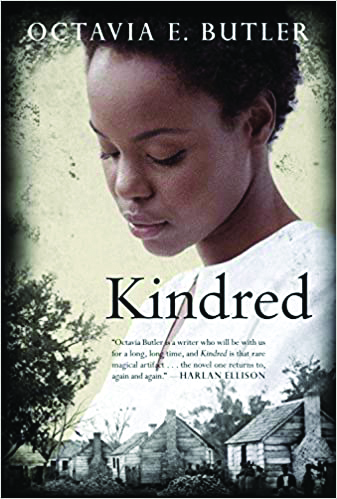
It follows a young black woman in an interracial marriage through time travel back to the Antebellum South, where she’s tasked again and again with saving the life of the plantation owner, also her ancestor, who eventually takes one of his slaves as his mistress. Challenging her readers to reckon with America’s history, Kindred introduced slavery into science fiction, as she draws on elements of African and African American mysticism and mythology in all her work.
It took me years to pick up another one of Butler’s books, still skeptical of the genre, but intrigued by the concept behind Parable of the Sower, the first of two books in the Earthseed series. In some ways a precursor to recent bestsellers like Hunger Games and Divergent, Butler’s Parable follows a young girl in the post-apocalyptic, climate-destroyed world of the 2020s as she leaves the tribalism and safety of her neighborhood to head north, attracting others — the outcast, the vulnerable, the lonely — on the journey. Possessed with hyperempathy — or the ability to physically, viscerally, feel others’ pain and sensations — she becomes the de facto leader of the group as she develops a wholly new belief system (Earthseed) to prepare the group for life on another planet.
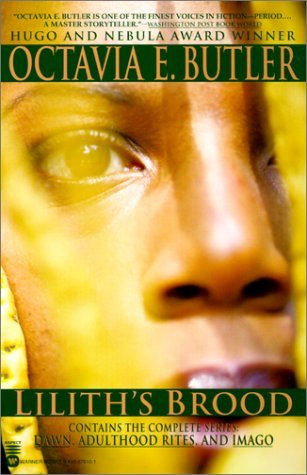
Although she personally disliked being called a prophet, Butler’s work is prescient, warning us about human impacts on the changing climate and the leaders we’ve chosen, while urging mutual and communal reliance despite complex differences. Her characters are deeply human — fallible, resilient, nuanced. Her stories expansive and evocative. In 1995, she became the first science-fiction writer to receive a MacArthur Fellowship, or “Genius Grant,” setting the stage for the many who have followed. Throughout her career, Butler won multiple Hugo and Nebula awards, recognizing her contribution to the science-fiction genre.
Just this summer I found another trilogy of hers, Lilith’s Brood, at a small gift and coffee shop in Salida on the shelf next to this year’s required reading like Me and White Supremacy and How to be an Anti-Racist. As the state begins to shut down again this fall, I’ve been lost in the world of the Oankali: unearthly beings, extraterrestrials, who rescued Lilith, along with hundreds of other humans, from Earth 250 years ago following nuclear destruction. Now on the Oankali’s living ship, the humans, led by Lilith, are being prepared to repopulate the Earth by mixing genetically with the empathetic and healing beings whether they want to or not. A treatise on human transformation, it’s mesmerizing, haunting, visionary.
Thanks to Butler, I guess I’m a sci-fi reader after all.
HOMEVIEWING
Refugee-pers Creepers
‘His House’ is a very, very, very fine house
by Ryan Syrek
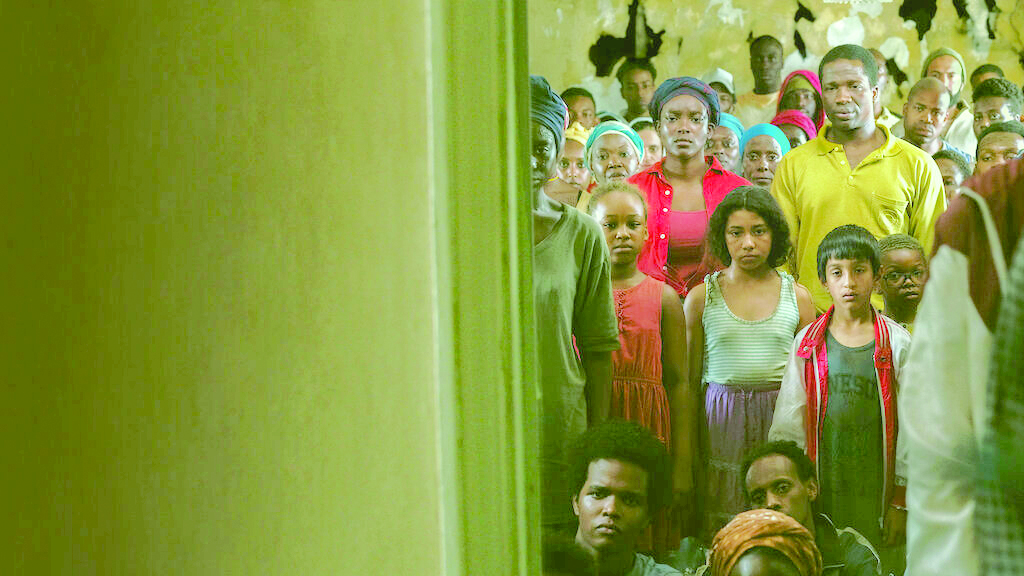
The most satisfying response to a horror movie scare is not a jump, a shriek or a recoil. It is a verbal “Nope!” It is that one-sided dialogue in which an audience member declares “Nuh-uh” in response to a scene of pure terror, as if to say, “I do not agree with you that I am seeing what I am seeing.”
Writer/director Remi Weekes’ His House is at least a quadruple “No thank you please” recipient. Without ever sinking to the depths of a single, manipulative jump scare, the relentlessly chilling film repeatedly tells you — in no uncertain terms — that something absolutely panic-inducing is about to happen. Then that thing happens. Then you say, “Absolutely not.”
The most insane thing? The fact that this film is the year’s scariest is not anywhere near its best feature.
His House operates from the underlying fundamental principle that made Get Out brilliant: It literalizes a real-world social horror. In this case, the brutality of assimilation experienced by refugees, as well as the PTSD that haunts them, is made supernaturally manifest. Bol (Sope Dirisu) and Rial Majur (Wunmi Mosaku) escaped South Sudan only to find themselves held in a lingering detention in England. Out of the blue, they are told they will be released, given a wickedly meager weekly allowance, and must reside in a demon-filled hell house or they’ll be kicked out of the country.
OK, so the bureaucrats don’t specifically say that Satan is the landlord of the decrepit manor the Majurs will be forced to live inside. But that is totally Beelzebub’s property. The first night, Bol hears things inside the walls, so he reaches his hand in there. Shockingly, things do not get better from there! His House is a Russian-nesting-doll of terrors; every layer unpacks a fresh-and-awful trauma and at least one level reveals a legitimately shocking plot point.
Working from a story by Felicity Evans, Weekes’s film inverts the grotesque attempts by certain politicians to reposition refugees as the monsters. If fleeing from genocide is too abstract to trigger some folks’ empathy toward these tortured people, chances are high that seeing a “night witch” do some icky boogey woogie to them isn’t going to awaken them from their moral coma. Still, seeing their struggle play out in hyperbolic, mythological fashion somehow legitimizes their plight.
All that said, if you want to chuck social responsibility and being a good person out the window, His House can be enjoyed as nothing more than a bangin’ haunted house jam. The cinematography by Jo Willems is often downright poetic, the acting is multiple light years beyond most performances in this genre, and it is jam-packed with so much “Nope” that you absolutely should say “Yes.”
This review first appeared in The Reader of Omaha, Nebraska.














